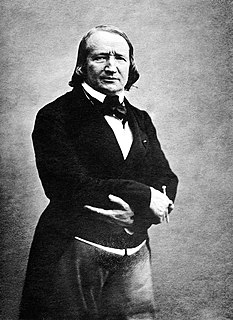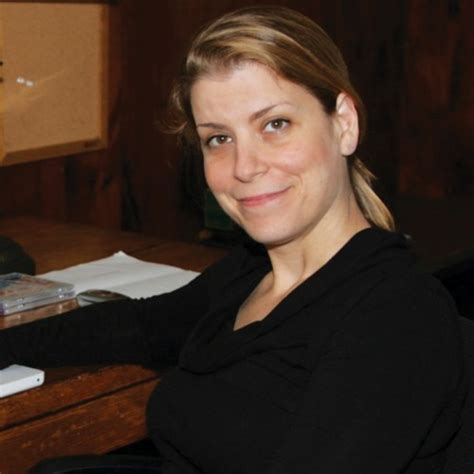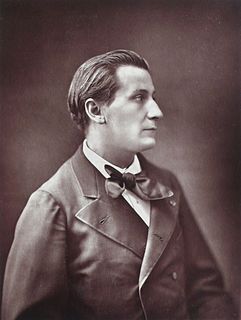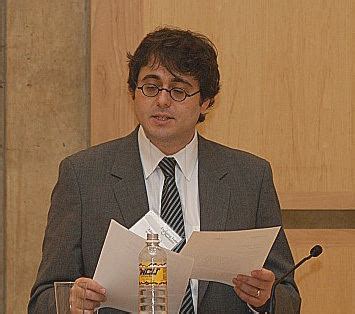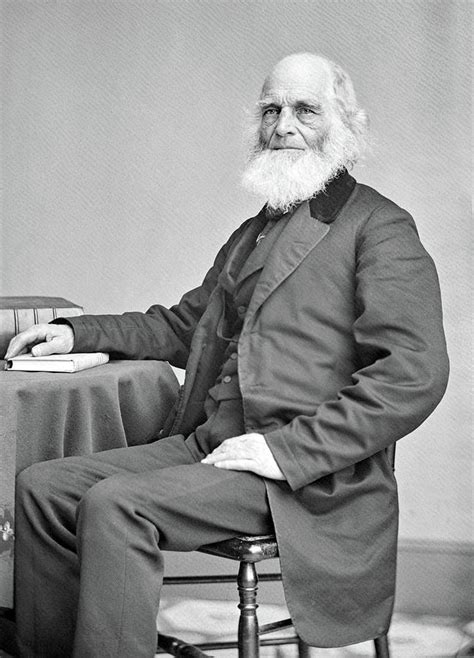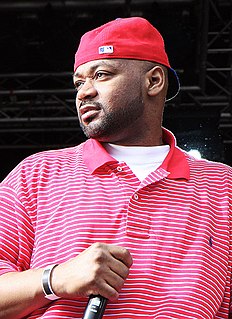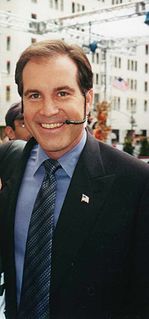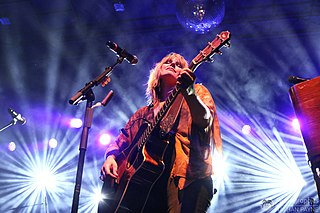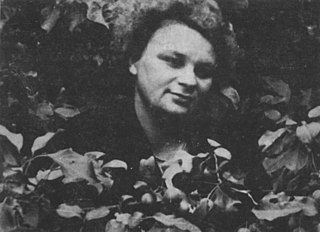Top 1200 What Is Poetry Quotes & Sayings - Page 13
Explore popular What Is Poetry quotes.
Last updated on November 25, 2024.
I should think that many of our poets, the honest ones, will confess to having no manifesto. It is a painful confession but the art of poetry carries its own powers without having to break them down into critical listings. I do not mean that poetry should be raffish and irresponsible clown tossing off words into the void. But the very feeling of a good poem carries its own reason for being... Art is its own excuse, and it’s either Art or it’s something else. It’s either a poem or a piece of cheese.
Chemistry has the same quickening and suggestive influence upon the algebraist as a visit to the Royal Academy, or the old masters may be supposed to have on a Browning or a Tennyson. Indeed it seems to me that an exact homology exists between painting and poetry on the one hand and modem chemistry and modem algebra on the other. In poetry and algebra we have the pure idea elaborated and expressed through the vehicle of language, in painting and chemistry the idea enveloped in matter, depending in part on manual processes and the resources of art for its due manifestation.
The sublime can only be found in the great subjects. Poetry, history and philosophy all have the same object, and a very great object-Man and Nature. Philosophy describes and depicts Nature. Poetry paints and embellishes it. It also paints men, it aggrandizes them, it exaggerates them, it creates heroes and gods. History only depicts man, and paints him such as he is.
I wrote poetry for seven or eight years, maybe longer, before I could say I was a poet. If people asked, I'd say I wrote poetry; I wouldn't go further. I was in my mid- to late-thirties before I felt that I was a poet, which I think meant that I had begun to embody my poems in some way. I wasn't just a writer of them. Hard to say what, as a poet, my place in the world is. Some place probably between recognition and neglect.
I think poetry can be a kind of secular way in which people can be led to approach the difficult parts of their life, where there's been loss, where there's sadness of a deep kind. If poetry can help people to be more at ease in expressing even to themselves a lot of the darkness and pain of ordinary human existence, then it's serving some kind of cultural role, perhaps more than a cultural role, perhaps it is serving something of a spiritual role.
People have a very limited idea of what being creative is - playing the guitar or the flute or writing poetry - so people go on writing rubbish in the name of poetry. You have to find out what you can do and what you cannot do. Everybody cannot do everything. You have to search and find your destiny. You have to grope in the dark, I know. It is not very clear-cut what your destiny is, but that's how life is. And it is good that one has to search for it - in the very search, something grows.
I don't think poetry needs to be "easily understandable." First of all, there are often complexities of syntax, form, unfamiliar absences, etc., that require a deeper concentration than is usually demanded of us. So that, right off the bat, is a little difficult. Then there is the deeper issue of what poetry is really asking of us. I feel it is asking us to read with great, even sacred, care and attention. That, too, is difficult. It requires discipline and the creation of a temporary zone of privacy, which is inimical to our current conditions of life.
It is worthwhile adding that the power of the poem to teach not only sensibilities and the subtle movements of the spirit but knowledge, real lasting felt knowledge, is going mostly unnoticed among our scholars. The body of knowledge locked into and releasable from poetry can replace practically any university in the Republic. First things first, then: the primal importance of a poem is what it can add to the individual mind.Poetry is the voice of a poet at its birth, and the voice of a people in its ultimate fulfillment as a successful and useful work of art.
There are some good things and some fantastic ones in Auden's early attitude; if the reader calls it a muddle I shall acquiesce, with the remark that the later position might be considered a more rarefied muddle. But poets rather specialize in muddles and I have no doubt which of the muddles was better for Auden's poetry: one was fertile and usable, the other decidedly is not. Auden sometimes seems to be saying with Henry Clay, "I had rather be right than poetry"; but I am not sure, then, that he is either.
Touch your inner space, which is nothingness, as silent and empty as the sky; it is your inner sky. Once you settle down in your inner sky, you have come home, and a great maturity arises in your actions, in your behavior. Then whatever you do has grace in it. Then whatever you do is a poetry in itself. You live poetry; your walking becomes dancing, your silence becomes music.
In the 1970s, for example, I found myself learning to relish the poetry of Andrew Marvell and Sir Thomas Wyatt, and getting a handle on poetry of plainer speech than I had dwelt with heretofore. Which led me into a new appreciation of middle [William Butler ] Yeats, of the short three-beat line and forward-driving syntax, and that paid in, in turn, to a poem like Casualty in Field Work. The traffic, however, was usually the other way. My teaching was animated by what I was reading and being excited by as a poet.
The quality of light by which we scrutinize our lives has direct bearing upon the product which we live, and upon the changes which we hope to bring about through those lives. It is within this light that we form those ideas by which we pursue our magic and make it realized. This is poetry as illumination, for it is through poetry that we give name to those ideas which are, until the poem, nameless and formless-about to be birthed, but already felt.
Gunn would be an important figure-rewarding, delightful, accomplished, enduring-in the history of English-language poetry even were his life not as fascinating as it now seems; he would be an important figure in the history of gay writing and in the history of transatlantic literary relations even were his poetry not so good as it is. With his life as it was and his works as they are, he's an obvious candidate for a volume of retrospective and critical essays, and this one is first-rate.
The design of a book is the pattern of a reality controlled and shaped by the mind of the writer. This is completely understood about poetry or fiction, but it is too seldom realized about books of fact. And yet the impulse which drives a man to poetry will send another man into the tide pools and force him to try to report what he finds there.... It would be good to know the impulse truly, not to be confused by the 'services to science' platitudes or the other little mazes into which we entice our minds so that they will not know what we are doing.
When we look at the arts and letters in America, especially if we look at poetry, and poetry set to music, this dialogue, we have this very powerful beautiful, eclectic, diary, or narration of being in America, being American, participating in America, becoming more of America and also as an American, the American creative spirit, which is quite interesting. Our composers and poets have spent more time writing and thinking and speaking out of what it means to be a composer or poet as well as to be an American, or a composer or poet In America; both relationships.
Re: Robert Montgomery's Poems His writing bears the same relation to poetry which a Turkey carpet bears to a picture. There are colours in the Turkey carpet out of which a picture might be made. There are words in Mr. Montgomery's writing which, when disposed in certain orders and combinations,have made, and will make again, good poetry. But, as they now stand, they seem to be put together on principle in such a manner as to give no image of anything in the heavens above, or in the earth beneath, or in the waters under the earth.
If one believes philosophers, then what we call religion is only a deliberately popularized or an instinctively artless philosophy. Poets seem to consider religion rather as a variation of poetry which by misjudging its proper beautiful game takes itself too seriously and one-sidedly. Philosophy, however, admits and recognizes that it can begin and complete itself only with religion. Poetry seeks only to strive for the infinite and despises worldly utility and culture, which are the true antitheses of religion. Eternal peace among artists is thus not far away.
What a contrast between the stern and desolate poetry of Ossian, and that of Chaucer, and even of Shakespeare and Milton, much more of Dryden, and Pope, and Gray! Our summer of English poetry, like the Greek and Latin before it, seems well advanced towards its fall, and laden with the fruit and foliage of the season, with bright autumnal tints, but soon the winter will scatter its myriad clustering and shading leaves, and leave only a few desolate and fibrous boughs to sustain the snow and rime, and creak in the blasts of age.
I do like Canadian poetry. Christian Bök, Anne Carson, Carmine Starnino, and Don McKay are a few of the Canadian poets whose work has been important to me. But I'm not sure that I do see poetry as a world apart. Some of my metaphors are based in the fantastic, but I try to be true to life as I understand it. That understanding is affected by my Canadianness, my Americanness, my whiteness, my gender, my age, my education, my experience...everything about me affects my view of reality. But I try to wrestle against those partialities, not embrace them.
We have more poets than judges and interpreters of poetry. It is easier to write an indifferent poem than to understand a good one. There is, indeed, a certain low and moderate sort of poetry, that a man may well enough judge by certain rules of art; but the true, supreme, and divine poesy is equally above all rules and reason. And whoever discerns the beauty of it with the most assured and most steady sight sees no more than the quick reflection of a flash of lightning.
The gods weave misfortunes for men, so that the generations to come will have something to sing about.” Mallarmé repeats, less beautifully, what Homer said; “tout aboutit en un livre,” everything ends up in a book. The Greeks speak of generations that will sing; Mallarmé speaks of an object, of a thing among things, a book. But the idea is the same; the idea that we are made for art, we are made for memory, we are made for poetry, or perhaps we are made for oblivion. But something remains, and that something is history or poetry, which are not essentially different.
So far as I am concerned, poetry and every other art was and is and forever will be strictly and distinctly a question of individuality... If poetry is your goal, you've got to forget all about punishments and all about rewards and all about self-styled obligations and duties and responsibilities etcetera ad infinitum and remember one thing only: that it's you - nobody else - who determine your destiny and decide your fate. Nobody else can be alive for you; nor can you be alive for anybody else... There's the artist's responsibility; and the most awful responsibility on earth.
It occurs to me to wonder: do I believe in any god, or even positively not believe, as James does? I believe in systems and methods. I believe in the beauties of philosophy and poetry. I believe that the work we do and leave behind us is our afterlife; and I believe that history lies, but sometimes so well that I can't bring myself to resent it. I believe that truth is beauty, but not, I'm afraid, the reverse. It doesn't seem sufficient to sustain one in life's rigorous moments. Perhaps I shall embrace Islam. Its standards for poetry seem very high.
The only artists I have ever known who are personally delightful are bad artists. Good artists exist simply in what they make, and consequently are perfectly uninteresting in what they are. A great poet, a really great poet, is the most unpoetical of all creatures. But inferior poets are absolutely fascinating. The worse their rhymes are, the more picturesque they look. The mere fact of having published a book of second-rate sonnets makes a man quite irresistible. He lives the poetry that he cannot write. The others write the poetry that they dare not realize.
Italian is a very different poetic situation and there are these hard and fast rhythmic periods, settenari, ottonari of seven and eight syllables. These are fundamental to the way people speak and write and breaking them is more radical in Italian than when we break a line. I'm sure there are Italian poets who want to write poetry as prose and break these Petrarchan rules. And breaking them is fun and a valid thing to do. But I'm more interested in trying to write poetry that absorbs tradition and uses it in new ways, and doesn't throw it out.









